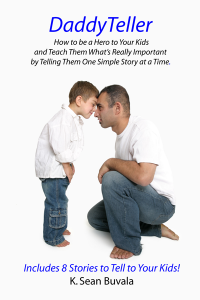|
|
December 10, 2010
We don’t really expect our kids to be happy all the time, but we still want them to be. It’s what I want for myself too! That’s why, after decades of rigorous research I’m ready to reveal my heretofore closely guarded Secret of Happiness. Yes, folks, I’ve developed a four-prong approach guaranteed to increase your Happiness Quotient (aka HapQ). It’s simple. If you want to be happy just:
- Do more of what brings you joy. A no-brainer, but most of us live like we’ve got forever to get to the fun stuff in life when actually it could all be over… Whoa! That kind of thinking lowers my HapQ. Not going there. Onward to #2.
 Avoid obvious joy-busters. If you know something (or someone) brings you down, limit your exposure or stay away altogether. A few of my instant “joy-busters” include: burnt popcorn, yellow jackets, and stubble. As for people who are consistently no fun to be around…. don’t go camping with them. Do NOT! Avoid obvious joy-busters. If you know something (or someone) brings you down, limit your exposure or stay away altogether. A few of my instant “joy-busters” include: burnt popcorn, yellow jackets, and stubble. As for people who are consistently no fun to be around…. don’t go camping with them. Do NOT!- Deal (ASAP) with whatever smooshes your joy. If a situation you’ve got no control over is stressing you out, you’re not powerless. There’s always something you can do to modify your response. You could, for example, close your mouth and quit complaining. It rarely improves a situation. In fact belly-aching often intensifies your awareness of how much you’re suffering. Some of my joy smooshers include: luke warm hot chocolate, aggressive louts, cold feet, misplaced eye-glasses, dog hair on the rug, and any paragraph I’m not yet satisfied with.
- Breathe. For anything you can’t avoid or flat-out change… you can always inhale (slowly & evenly), exhale (ditto), and smile. (Even a half-smile will do.) Up goes the old HapQ. Breathing is free, available 24/7, no membership or trendy work-out clothes needed. Breathing always restores my sense of humor except during the truly horrible year my mom was dying of Lou Gehrig’s Disease. And, much more recently, when we tried to build a new fence and our neighbor pitched a fit and a rather large attorney in our direction. I know, I know. “Don’t sweat the small stuff.” I try not to, but sometimes my mind loses me.
I can’t say exactly what all this has to do with parenting. Except that sometimes we just have to tough it out. And so do our kids. We can’t always rescue them up when they’re down. Maybe the best we can do is remind them that someone is always not happy, and right now they seem to be It. On the other hand, tomorrow (or even sooner) it might be their turn to be happy again. Just knowing that could help.

December 6, 2010
 "DaddyTeller: How to be a Hero to Your Kids and Teach Them What's Really Important By Telling Them One Simple Story at a Time" by K. Sean Buvala Today’s guest is K. Sean Buvala, professional storyteller. This guy’s good. How good? Well, in 2007 he won the annual Oracle Award by the National Storytelling Network for his work in the promotion of storytelling, including the development of storyteller.net, an online goldmine of resources for storytellers of all stripes and their audiences. So yeah, that’s how good!
Sean is the father of four beautiful daughters. That kinda sounds like the beginning of a story, doesn’t it? Sean is also the author of DaddyTeller: How to be a Hero to Your Kid and Teach Them What’s Really Important by Telling them One Simple Story At a Time.
According to Sean, the average dad spends “less than 30 minutes a day with his kids.” That’s not good. I know, I know, parents are busy. Apparently so are kids. On average our children spend four hours a day focused on TV, Internet and/or video games. That’s an awful lot of influence being pumped into them from… who knows where? If fathers want more of a hand in shaping the values and character of their kids… short of becoming stay-at-home dads, what can they do it? Great question! Stick around. We’ve got answers.
Listen to my conversation with Sean Buvala right here:
[QUICKTIME http://www.anniefox.com/podcast/FC023.m4a 300 300 false true]
If you have iTunes, you can subscribe to this podcast in the iTunes Store.
Or, you can download an MP3 version here.
Upcoming guests include:
Rachel Simon, author of Riding The Bus With My Sister and The House on Teacher’s Lane
Dr. Karyn Purvis, co-author (with Dr. David Cross, Wendy Lyons Sunshine) of The Connected Child: Bring hope and healing to your adoptive family
Judith Warner, author of Perfect Madness: Motherhood in the Age of Anxiety and We’ve Got Issues: Children and Parents in the Age of Medication

December 2, 2010
 How much longer, Mom? I’m not an idiot. I know it’s not always possible to drop what you’re doing to listen to your kids. But let’s be honest: not many of us do open-heart surgery or negotiate international crises at home. So when our kids need to talk, we could take a break and focus on them if we chose to. But most of the time we don’t. We keep doing whatever we’re doing and shift into an unconscious auto-listening/responding thing (“Uh, huh. Uh, huh”). If you feel like it’s more pressing to fold laundry or do your online banking instead of having a real conversation with your teen, that’s your choice, but at least be upfront about it. Auto-listening is a bad idea for these reasons:
- It’s not healthy. In a healthy relationship trust and respect have to flow in both directions. Want your kids to respect you? Then you’ve got to respect them. Auto-listening is disrespectful.
- It’s not fooling them. Even toddlers have been known to turn Mom or Dad’s head to get their attention. If an 18 month old knows that no eye contact means you’re preoccupied, how can you hope to fake it with a teen? And why would you want to?
- You’re showing that “other things” are more important to you than your kids. You and I know you don’t really feel that way, so why would you send that message? Your teens don’t get 100% attention from their teachers or their friends. Let them at least get it from you while you’re having a conversation.
- Auto-listening is poor modeling. Our kids don’t listen to us for a couple of reasons: a) they’re teens and they need to shut you out so they can build their own identity, and b) we haven’t spent enough time showing them what active listening looks and feels like. You can’t do much about their developmental need to shut you out, but when you make a real effort to listen to your kids (with eye contact, 100% of your attention, and an open heart and mind) you’re setting the stage for them to listen more attentively to you and others.
Don’t assume an increase in listening is going to increase the common ground between you and your teen. (We’re working on communication here, not cloning.) But if you focus more on listening you can reasonably predict there’ll be less confusion about what was actually said in a conversation. That means less arguments studded with gems like: “I never said that!” “You never said that!” and “What are you talking about?!”
Nothing is more important than showing your son or daughter that you’re always available to help, guide, and support. If your kid is troubled enough to come to you, this is when you need to be great. Personally, I can’t imagine anything that would take precedent over my desire to help my child. But if you’re truly involved in something that can’t be interrupted (even for 5 minutes) then at least stop momentarily, make eye contact, and say, “Sweetheart, I really want to hear this, and you deserve 100% of my attention, but I can’t give you that right now. Can this wait until 8 o’clock*?” (NOTE: You can’t use this excuse very often otherwise your kid is going to think “You never have time for me.”)
*When 8 o’clock arrives, don’t forget your promise. Don’t leave it up to your child to restart the conversation. It’s up to you to knock on your child’s door and say, “I’m ready to listen now. Is this a good time for you?” The intensity of the emotion that brought your son and daughter to you initially may have passed. You may have missed an opportunity to help. But by coming around as you said you would, you’re showing your child that you really do care. And hopefully, they’ll give you other opportunities to focus on them.

| |
 Avoid obvious joy-busters. If you know something (or someone) brings you down, limit your exposure or stay away altogether. A few of my instant “joy-busters” include: burnt popcorn, yellow jackets, and stubble. As for people who are consistently no fun to be around…. don’t go camping with them. Do NOT!
Avoid obvious joy-busters. If you know something (or someone) brings you down, limit your exposure or stay away altogether. A few of my instant “joy-busters” include: burnt popcorn, yellow jackets, and stubble. As for people who are consistently no fun to be around…. don’t go camping with them. Do NOT!












